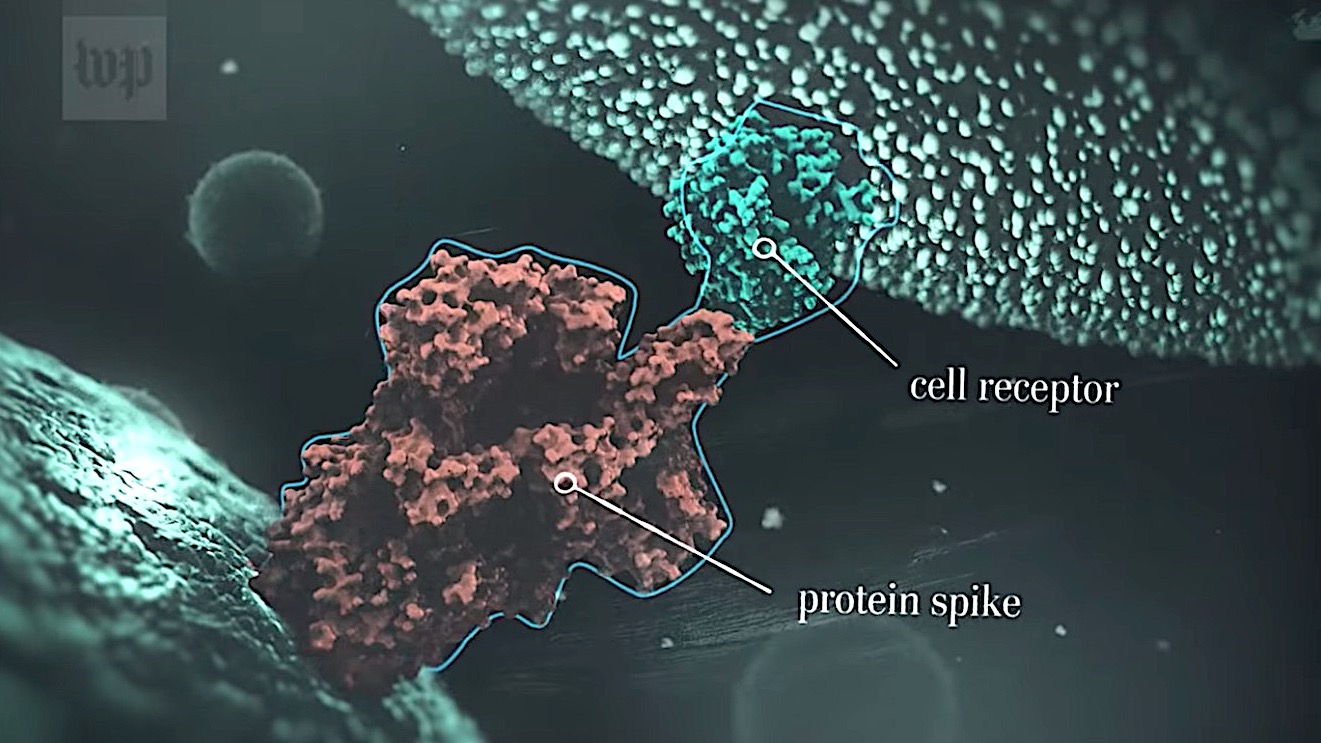The COVID-19 coronavirus is only the 7th known to infect humans


A free daily email with the biggest news stories of the day – and the best features from TheWeek.com
You are now subscribed
Your newsletter sign-up was successful
There has been some confusion that COVID-19 is the 19th coronavirus disease, but the 19 refers to the year the new virus jumped to humans, 2019. In fact, "of the millions, perhaps billions, of coronaviruses, six were previously known to infect humans," The Washington Post reports.
Four cause colds that spread easily each winter, barely noticed. Another was responsible for the outbreak of severe acute respiratory syndrome that killed 774 people in 2003. Yet another sparked the outbreak of Middle East respiratory syndrome in 2012, which kills 34 percent of the people who contract it. But few do. SARS-CoV-2, the bad seed of the coronavirus family, is the seventh. It has managed to combine the infectiousness of its cold-causing cousins with some of the lethality of SARS and MERS. [The Washington Post]
"This is a virus that literally did not exist in humans six months ago," Geoffrey Barnes, an assistant professor at the University of Michigan, told the Post. "We had to rapidly learn how this virus impacts the human body and identify ways to treat it literally in a time-scale of weeks."
But scientists do know that coronaviruses invade the body by breaking into ACE2 receptors, which regulate blood pressure and are plentiful in the lungs, intestines, and kidneys. And they suspect the "corona" — or spikes on the outside of the virus — in the COVID-19 virus are more effective at attaching to the receptors, making it easier for them to infiltrate the cells to replicate, as the Post explains in this video.
The Week
Escape your echo chamber. Get the facts behind the news, plus analysis from multiple perspectives.

Sign up for The Week's Free Newsletters
From our morning news briefing to a weekly Good News Newsletter, get the best of The Week delivered directly to your inbox.
From our morning news briefing to a weekly Good News Newsletter, get the best of The Week delivered directly to your inbox.

The coronavirus hijacking your cells "would be as if somebody walked into a car factory and snapped his fingers and said suddenly, 'You're making Twinkies!'" David Leib, chair of microbiology and immunology at Dartmouth College, told WGBH. "It takes the virus roughly 10 minutes to get inside that cell and then to begin its replication cycle," and within days "you are a walking bottle of virus."
The coronavirus had infected at least 4.1 million people around the world by early Monday, including 1.3 million in the U.S., and officially killed 282,727 people, including 79,528 in the U.S., according to Johns Hopkins University's tally.
A free daily email with the biggest news stories of the day – and the best features from TheWeek.com
Peter has worked as a news and culture writer and editor at The Week since the site's launch in 2008. He covers politics, world affairs, religion and cultural currents. His journalism career began as a copy editor at a financial newswire and has included editorial positions at The New York Times Magazine, Facts on File, and Oregon State University.
-
 Political cartoons for February 21
Political cartoons for February 21Cartoons Saturday’s political cartoons include consequences, secrets, and more
-
 Crisis in Cuba: a ‘golden opportunity’ for Washington?
Crisis in Cuba: a ‘golden opportunity’ for Washington?Talking Point The Trump administration is applying the pressure, and with Latin America swinging to the right, Havana is becoming more ‘politically isolated’
-
 5 thoroughly redacted cartoons about Pam Bondi protecting predators
5 thoroughly redacted cartoons about Pam Bondi protecting predatorsCartoons Artists take on the real victim, types of protection, and more
-
 Trump HHS slashes advised child vaccinations
Trump HHS slashes advised child vaccinationsSpeed Read In a widely condemned move, the CDC will now recommend that children get vaccinated against 11 communicable diseases, not 17
-
 FDA OKs generic abortion pill, riling the right
FDA OKs generic abortion pill, riling the rightSpeed Read The drug in question is a generic version of mifepristone, used to carry out two-thirds of US abortions
-
 RFK Jr. vaccine panel advises restricting MMRV shot
RFK Jr. vaccine panel advises restricting MMRV shotSpeed Read The committee voted to restrict access to a childhood vaccine against chickenpox
-
 Texas declares end to measles outbreak
Texas declares end to measles outbreakSpeed Read The vaccine-preventable disease is still spreading in neighboring states, Mexico and Canada
-
 RFK Jr. shuts down mRNA vaccine funding at agency
RFK Jr. shuts down mRNA vaccine funding at agencySpeed Read The decision canceled or modified 22 projects, primarily for work on vaccines and therapeutics for respiratory viruses
-
 Measles cases surge to 33-year high
Measles cases surge to 33-year highSpeed Read The infection was declared eliminated from the US in 2000 but has seen a resurgence amid vaccine hesitancy
-
 Kennedy's vaccine panel signals skepticism, change
Kennedy's vaccine panel signals skepticism, changeSpeed Read RFK Jr.'s new vaccine advisory board intends to make changes to the decades-old US immunization system
-
 Kennedy ousts entire CDC vaccine advisory panel
Kennedy ousts entire CDC vaccine advisory panelspeed read Health Secretary RFK Jr. is a longtime anti-vaccine activist who has criticized the panel of experts
